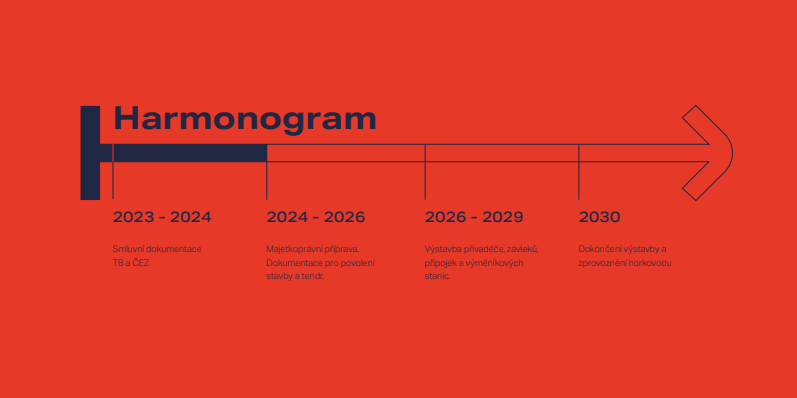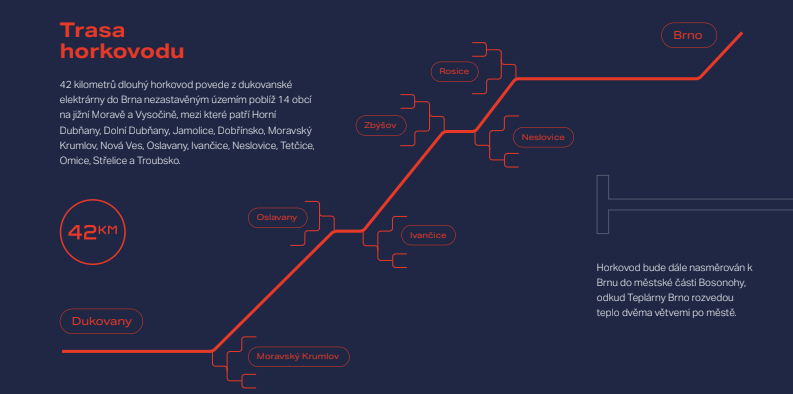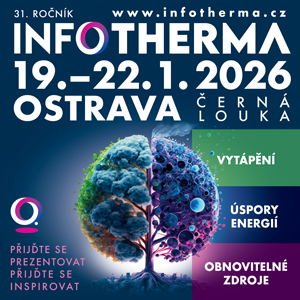Within the next two years, construction is expected to begin on one of the largest investments in energy infrastructure in the history of the Czech Republic. A planned district heating pipeline from the Dukovany Nuclear Power Plant to the city of Brno will supply heat to more than 100,000 households, as well as schools, hospitals, and public buildings. Completion is projected for late 2031 or early 2032. This project marks a significant step toward reducing Brno’s dependence on natural gas and enhancing its energy self-sufficiency.
Preparatory work is currently in full swing, proceeding according to schedule. Public tenders are underway for design and construction management, while technical surveys of the route and property negotiations are ongoing. Teplárny Brno, the project’s investor, continues to engage strategically with all key stakeholders, with a particular focus on securing essential subsidy support.

“Our goal is to improve energy efficiency and support the city’s ecological development. That’s why we’ve introduced our new slogan: We Are Your Energy,”
says Petr Fajmon, CEO of Teplárny Brno.
In March, representatives from Teplárny Brno presented the project at various platforms—nationally and internationally. They shared updates with the Economic Committee of the Czech Parliament and took part in a key energy discussion in Brussels hosted by MEPs Mirosława Nykiel, Katri Kulmuni, and Ondřej Kovařík. The company highlighted its project in the broader context of the EU’s Fit for 55 strategy, which aims to cut greenhouse gas emissions by 55% by 2030.
“District heating already serves 70 million Europeans and plays a vital social and environmental role. It has huge potential to integrate into the broader energy system. Presenting the Dukovany-Brno pipeline in Brussels allowed us to demonstrate how projects like this contribute to ambitious European climate goals,”
adds Petr Fajmon.
A Major Step for Brno and the Region
This investment aligns with the national energy strategy and will have a regional impact far beyond the city itself. Heat from the nuclear plant will serve households, schools, hospitals, institutions, and industrial businesses. The benefits extend well beyond basic supply: Brno’s energy independence will grow, and CO₂ emissions are projected to drop by up to 120,000 tons annually, the equivalent of taking 100,000 cars off the road.

“Using heat from Dukovany would significantly reduce our reliance on natural gas, which currently accounts for over 80% of our fuel mix. This shift allows us to offer customers more stable heat delivery and predictable pricing—both crucial in today’s energy market,”
explains Martin Šroubek, Distribution Director at Teplárny Brno.
The pipeline’s route will span 42 kilometers, crossing unbuilt land near 14 municipalities in South Moravia and the Vysočina region. In addition to Dukovany, the pipeline will pass near Horní Dubňany, Dolní Dubňany, Jamolice, Dobřínsko, Moravský Krumlov, Nová Ves, Oslavany, Ivančice, Neslovice, Tetčice, Omice, Střelice, and Troubsko. It will reach Brno via the Bosonohy district, from where the heat will be distributed through two main branches.

The project is expected to deliver long-term economic returns by reducing gas consumption, lowering emissions allowance costs, and improving predictability in budgeting for public institutions. It will also result in a more reliable, less failure-prone heating network. The use of modern pre-insulated piping technology will minimize thermal losses during transmission.
Job Creation and Sustainable Vision
The pipeline project is already creating new jobs in areas such as design, surveying, construction, and legal consultancy. Once operational, it will require skilled workers for long-term network maintenance and operation.
This initiative revives and updates plans first envisioned in the 1980s, offering a logical and timely solution for more sustainable use of energy resources. In today’s geopolitical and energy landscape, the project has gained renewed relevance.
It is part of a broader effort by Teplárny Brno to modernize and decarbonize the city’s heating infrastructure. The company is actively replacing outdated steam pipelines with modern district heating systems—only 11 out of 96 kilometers remain to be upgraded in the next three years. Meanwhile, it continues expanding its EV charging station network, investing in renewable energy, and building a new biomass boiler that will burn wood chips.
The Dukovany-Brno heating pipeline is more than an infrastructure project. It’s a long-term strategy for a greener, more resilient energy future.
Source: Svět průmyslu Editorial Team
May 28, 2025







